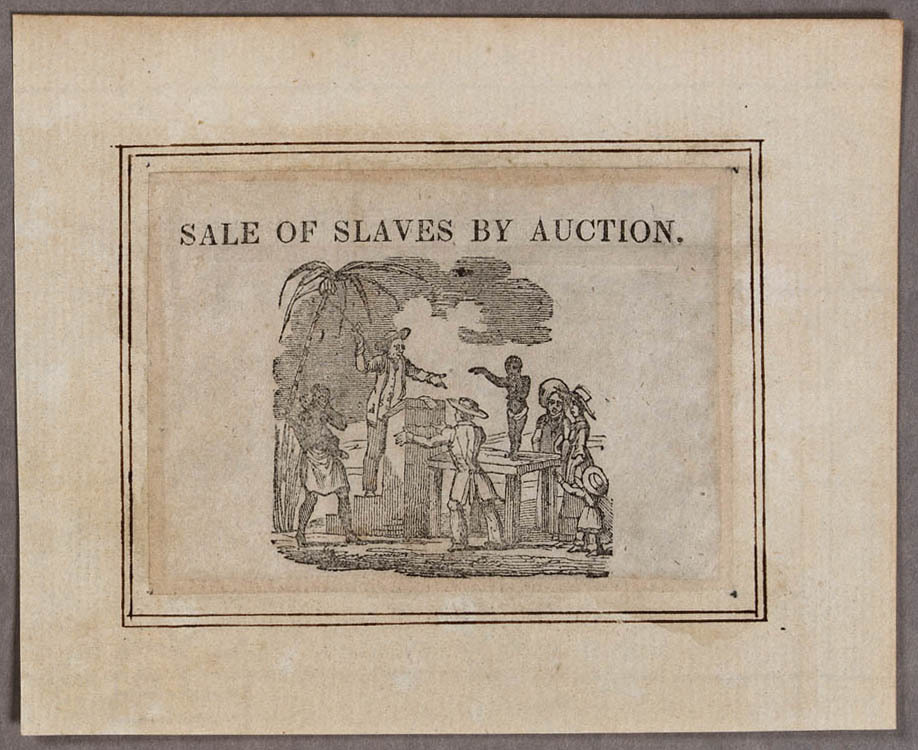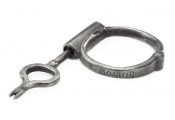This print from 1787 shows how Africans were sold when they arrived in the Americas. A child standing on the platform has just been sold to the European approaching the auctioneer’s lectern. The women standing by suggest that the child has been bought as a domestic slave. Many enslaved Africans died during the Atlantic Crossing; others became weak and ill. When they were sold in the Caribbean or in the United States they were made to look as healthy as possible. The mark-up in price was considerable.
In 1790, John Newton told Parliament that a captive could generally be bought in Africa for £3 and sold at auction in the Caribbean for £25. Auctions or scrambles were the most popular way to sell slaves. There they were subjected to inspections using the most intimate and humiliating examinations, as if they were animals at market. Children were separated from parents without any regard for the emotional ties between them as documented in accounts by Mary Prince and Frederick Douglass.
© National Maritime Museum, Greenwich, UK
Accession reference: National Maritime Museum, ZBA2516



